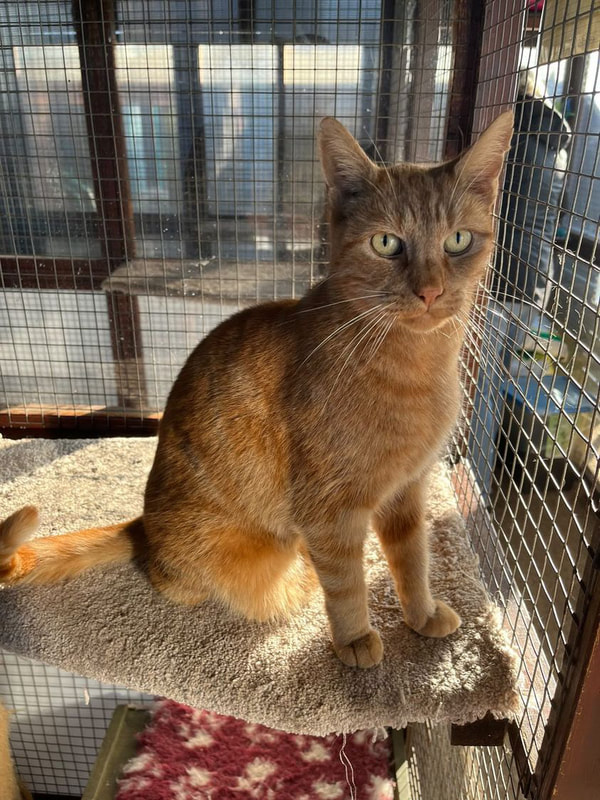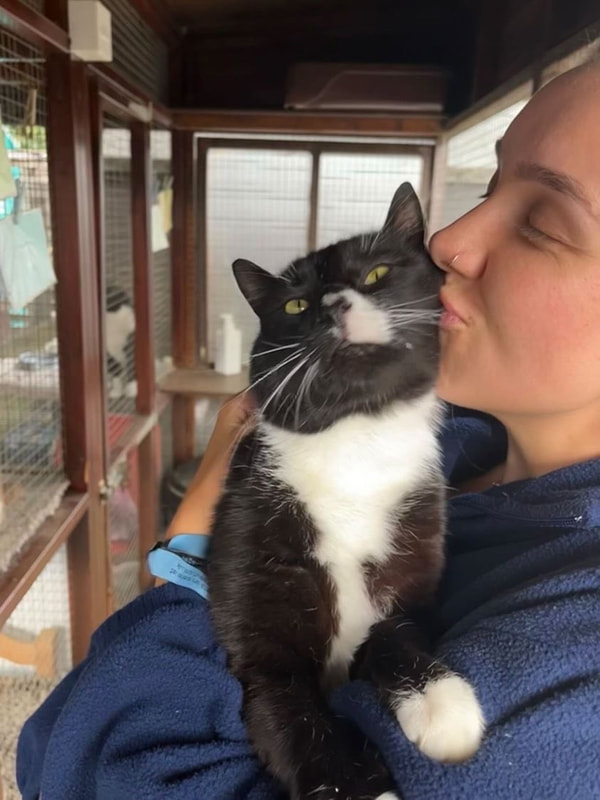Know the Facts about FIV
From time to time, we take in cats who have tested FIV Positive. Over the years there has been a lot of confusion as to what FIV is and what it means for the cat and the owner. Many cats have FIV, and you would never know as they go on to live normal, happy lives without any medical complications.
What is FIV?
FIV stands for Feline Immunodeficiency Virus. It is often described as Feline Aids, but this is not correct and can be confusing. In animals where the virus is active it eventually makes the cat less likely to fight off infection. It is a very slow acting virus and because of this many FIV Positive cats enjoy a normal, healthy lifespan.
Can I catch FIV from a cat that is FIV Positive?
You cannot catch FIV from a cat, nor can any other animal.
How does it pass from cat to cat?
There is a small chance the infection can be passed to another cat however it is widely accepted by many experts that this is only really a risk from a deep bite wound which is most likely to happen in unneutered male cats that fight. There is also a possibility it can be transmitted to a female cat whilst mating. Both of these instances could be prevented if people ensured their cats were neutered.
It cannot be transmitted indirectly on shoes, food, food bowls etc. Catchat.org recently quoted research that suggested a 1 – 2 % risk of a cat passing the infection to another in the same household.
How can I stop my cat from getting FIV?
There is no vaccination available in the UK so the only sure way you could prevent your cat from contracting FIV would be to keep it as an inside cat. This is a drastic reaction when the chances of contracting the virus are so low. You must ensure that your cats (both male and female) are neutered as this will stop the main cause of transmission – male cats fighting over territory or females.
Why would I want to adopt a FIV cat?
Why would you not? If you are looking for an indoor cat then they are perfect for you. It is recommended that FIV Positive cats are kept inside to prevent exposure to other illnesses and viruses and to prevent other cats fighting with them and potentially contracting the disease.
You should ensure your FIV cat receives regular check-ups with your vet and that you are vigilant to any change in their behaviour or eating habits. Find a vet who knows about FIV or will research it and work with you, rather than one who would recommend to euthanize an otherwise healthy cat.
It is worth remembering that all the statistics out there are based on those animals that required veterinary treatment.
There were many others that either lived a full life expectancy or lost their lives for other reasons.
If you would like to know more about FIV, or talk about any of the FIV cats currently in our care, please contact the shelter direct for more information.
What is FIV?
FIV stands for Feline Immunodeficiency Virus. It is often described as Feline Aids, but this is not correct and can be confusing. In animals where the virus is active it eventually makes the cat less likely to fight off infection. It is a very slow acting virus and because of this many FIV Positive cats enjoy a normal, healthy lifespan.
Can I catch FIV from a cat that is FIV Positive?
You cannot catch FIV from a cat, nor can any other animal.
How does it pass from cat to cat?
There is a small chance the infection can be passed to another cat however it is widely accepted by many experts that this is only really a risk from a deep bite wound which is most likely to happen in unneutered male cats that fight. There is also a possibility it can be transmitted to a female cat whilst mating. Both of these instances could be prevented if people ensured their cats were neutered.
It cannot be transmitted indirectly on shoes, food, food bowls etc. Catchat.org recently quoted research that suggested a 1 – 2 % risk of a cat passing the infection to another in the same household.
How can I stop my cat from getting FIV?
There is no vaccination available in the UK so the only sure way you could prevent your cat from contracting FIV would be to keep it as an inside cat. This is a drastic reaction when the chances of contracting the virus are so low. You must ensure that your cats (both male and female) are neutered as this will stop the main cause of transmission – male cats fighting over territory or females.
Why would I want to adopt a FIV cat?
Why would you not? If you are looking for an indoor cat then they are perfect for you. It is recommended that FIV Positive cats are kept inside to prevent exposure to other illnesses and viruses and to prevent other cats fighting with them and potentially contracting the disease.
You should ensure your FIV cat receives regular check-ups with your vet and that you are vigilant to any change in their behaviour or eating habits. Find a vet who knows about FIV or will research it and work with you, rather than one who would recommend to euthanize an otherwise healthy cat.
It is worth remembering that all the statistics out there are based on those animals that required veterinary treatment.
There were many others that either lived a full life expectancy or lost their lives for other reasons.
If you would like to know more about FIV, or talk about any of the FIV cats currently in our care, please contact the shelter direct for more information.



